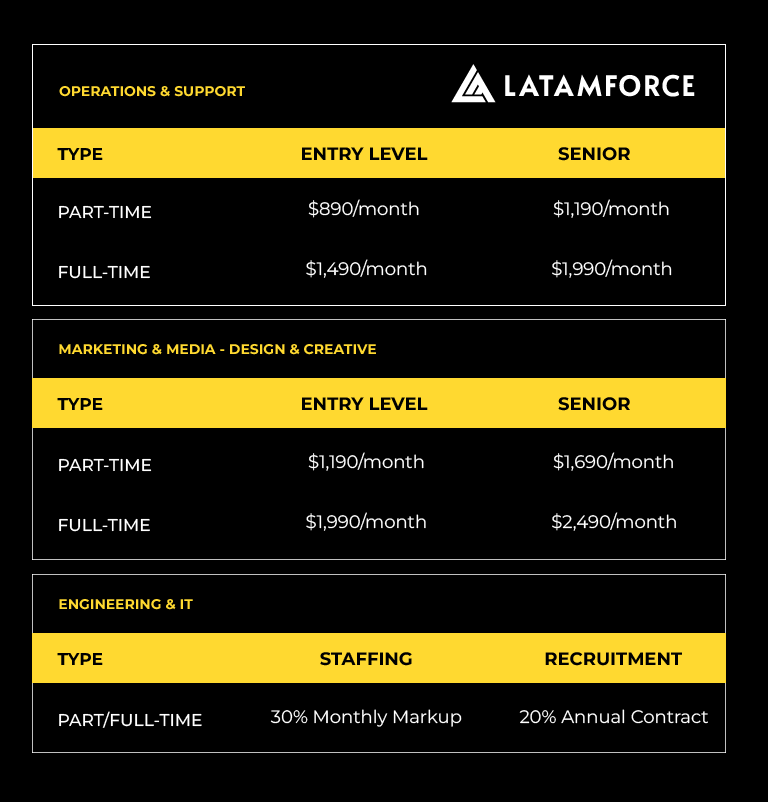Remote Work: Borderless and Inclusive
Building a borderless-inclusive community is just as important in a remote work environment as it is in a physical one, if not more.
One effect of the coronavirus pandemic has been a huge increase in the number of Americans working from home, getting the work done, and exceeding expectations.
Working from home, research has found, can boost employee productivity, improve work/life balance and foster better mental health, but this workplace revolution only went so far, remaining largely constrained within borders, and it has stayed that way.
Nowadays, companies are advertising only for remote positions, resulting in geography-dependent. What do we mean by this? the correct talent gets the job based on where they live.
It is fair to say that many companies need talent from specific places and time zones, but many do not.
In the title, we mentioned “borderless and inclusive remote work”…
Companies seeking to boost Diversity, Equity, and inclusion can help create a truly diverse and global workforce, and not only that, it can help companies improve their talent search.
Intrigued by borderless and inclusive remote work and how to make it happen in order to benefit companies and their employees? continue reading…
Borderless Remote work tips to take into consideration
Roles can become truly location-independent, especially with today’s technology, more and more businesses are conducting the same activities they did before without being in the same place at the same time.
Companies should be open to future job-seekers commitment. Even if the employer believes the applicant needs to be in a certain time zone.
Try asking the applicant how the job would work for them. Many are perfectly willing to work unusual hours if it seems like a great opportunity for them to grow in their specific field or in the company they applied for.
Do not ask them for specific working authorizations or specific national taxes, because these restrictions will not help you finding the right talent to work from anywhere.
If it can be achieved, let candidates work from wherever they want and let them be in charge of paying taxes in their own country.
If a remote work job can only be completed from certain locations, companies should make that clear from the beginning, it will save them and potential applicants time.
Businesses should also create protocols on how to create job offers, recruit, hire, and onboard new applicants regardless of where they live. A significant part of this is building a “culture of trust”.
The pandemic demonstrated that employees are just as capable of working from home as they are in the office, they should be trusted to do so.
Also, keep in mind that remote employees benefit companies by keeping costs down and being available at different hours. Employee progress and activity can be measured and monitored through clear goal-setting, but counting working hours or surveilling monitors or computer activity fails to create that necessary atmosphere of trust.
If a company does not trust its remote employees, that is a problem of organizational culture, not a problem related to a specific working style, whether that style is in-person, home office, or fully remote.
How to build an inclusive community in a remote work environment
Follow these five best practices to build an inclusive remote work environment.
1. Create welcoming virtual meetings
Remote workers look forward to seeing their coworkers’ faces when they first start the job and hop on a meeting.
We recommend you create a welcoming meeting space, invite everyone to turn on their cameras and start the meeting with a positive greeting. Identify everyone by name and simply ask, “how is your day going?” before jumping into the meeting. If an employee says they are having a rough day, be sure to acknowledge their feelings and show empathy. You can also send them a message in the chat privately letting them know you care.
2. Start a remote mentoring program
Remote mentoring programs for employees are a great way to build more inclusive cultures. Additionally, formalizing mentorship in the organization gives employees permission to connect with others about their goals and aspirations.
3. Teach your team how to be inclusive
An inclusive work environment is a group responsibility, but not all remote workers have the tools they need to be inclusive. That is why teaching inclusive practices are imperative to building a workplace that is safe for everyone.
When deciding how to offer training on inclusivity, keep your employees in mind, and ask yourself how do they absorb information best.
4. Create ways to show caring and recognition
Remote workers face an array of challenges when working from home. Studies from Sleep Advisor also show that 81% of remote workers are likely to keep working during vacation.
Not only are remote workers missing out on important social interactions, but they are also missing out on being recognized for their work efforts.
Here are some ideas for inspiration:
- Build-in time for remote workers to interact with each other freely
- Recognize every team member for a specific win they had during virtual meetings
- Send a private message to your employees thanking them for their work when they turn in an assignment
- Consider initiating a working coffee meeting where team members can pop on, mute their mics, and work on independent tasks
- Offer raises, bonuses, and perks as a way to recognize employees for completing big projects
- Send random employee appreciation virtual greeting cards throughout the year
- Show appreciation for remote workers when they contribute to the team or help a coworker
- Humanize your leadership approach by being open about your vulnerabilities and mistakes
- Show empathy and concern when employees go through hardships
- Let your employees know you hope they feel better soon when they call in sick
It is the little things that make a big difference.
5. Invite your team to share more about their cultures
Cultural appreciation is the lifeblood of inclusivity. It is the glue that holds your inclusive community together. What better way to appreciate cultures than to invite your team to share more about their own?
Here are some of our favorite ways to encourage remote workers to share more about their cultures:
Rotating cultural coffee club
You simply choose a different employee to lead the call each week, and whoever leads gets to share more about their culture and answer questions.
Holiday recipe party
Invite your employees to attend a virtual holiday party and swap favorite family holiday recipes. It may sound simple, but you would be surprised how passionate people can be about the food they love eating.
Virtual home tours
Have employees host virtual tours of their home environments to describe themselves and their cultures. Encourage the team to stay curious and ask thought-provoking questions about the host’s daily routines, family dynamics, and cultural differences.
What’s next?
We hope these tips have inspired you to find new ways to foster borderless and inclusivity in the remote workplace. For more on making remote work, work better, contact Latamforce.





